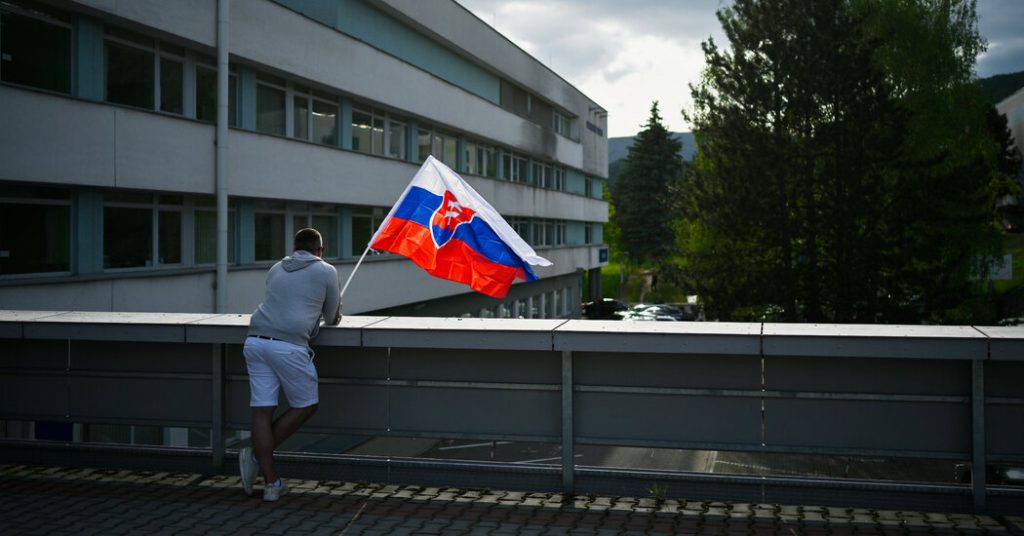The news of Slovakian Prime Minister Robert Fico being shot sent shockwaves through the country. The incident occurred in a deeply polarized political atmosphere where hateful rhetoric and even physical violence had become normalized, primarily on the internet. While threats were common, actual violence was rare. However, the shooting of the prime minister seemed to be a turning point, indicating that the escalating rhetoric was leading to real violence, leaving many uncertain about what would come next.
Robert Fico’s presence in Slovakian politics was significant, having served as prime minister four times since 2006. His relationship with the mainstream media was contentious, with frequent allegations of corruption. The murder of journalist Jan Kuciak in 2018, while investigating political corruption, further divided Slovakian politics. Large-scale protests demanding Fico’s resignation were eventually successful, leaving the public divided between his supporters and opponents, mostly along class and ideological lines.
The political atmosphere in Slovakia had been tense leading up to the shooting of Prime Minister Fico. He had recently returned to office, implementing controversial policies such as replacing the public broadcaster and dismantling an anti-corruption watchdog. The division between supporters and opponents had grown more entrenched with each political event, becoming less about policy issues and more about a battle between good and evil. The shooting added to the volatility, with some lawmakers blaming each other and the media while others called for unity in the face of escalating violence.
After the shooting, speculation about the motives behind the attack abounded, with many assuming it was politically motivated. The suspected attacker’s online activities and opinions were quickly analyzed, though his actual motives remained unclear. While the interior minister described the attack as politically motivated, he stated that the suspect did not belong to a radicalized group. Some lawmakers continued to point fingers and escalate tensions, while others urged a pause in campaigning for the upcoming European Union elections to prevent further violence.
The shooting of Prime Minister Fico highlighted the dangerous consequences of the hateful rhetoric and polarization that had become the norm in Slovakian politics. While threats and attacks had been part of the political landscape, the actual violence against a prominent political figure brought a sense of urgency and concern about the future of the country. As the nation grappled with the aftermath of the shooting, voices calling for unity and an end to the culture of hate emerged, urging a more constructive approach to political discourse and decision-making.
Alena Krempaska, the program director at the Human Rights Institute in Bratislava, reflected on the shooting and its implications for Slovakian society. The incident served as a wake-up call about the consequences of divisive and hostile political rhetoric, urging individuals and lawmakers to work towards a more inclusive and respectful political environment. The shooting of Prime Minister Fico was a stark reminder of the dangers of extreme polarization and the urgent need to address the underlying issues that had led to such a violent act in a country struggling to find unity and stability in the face of political turmoil.







